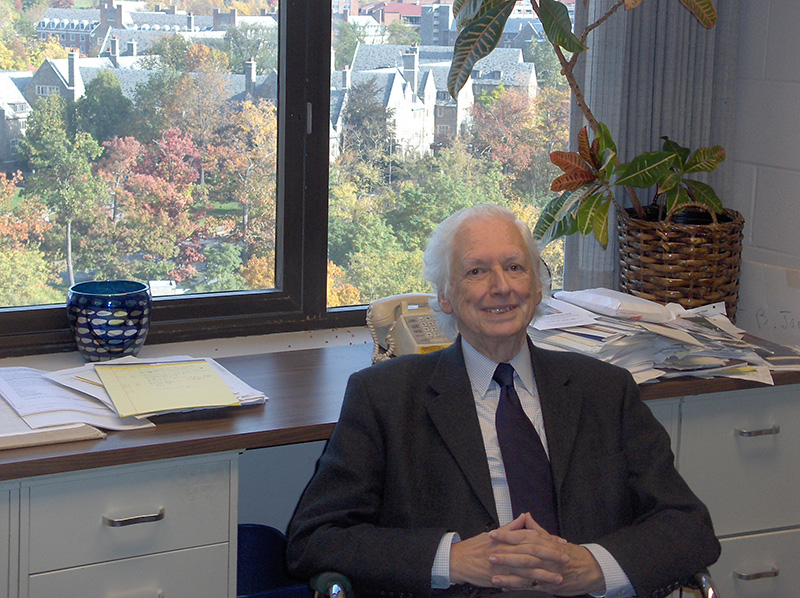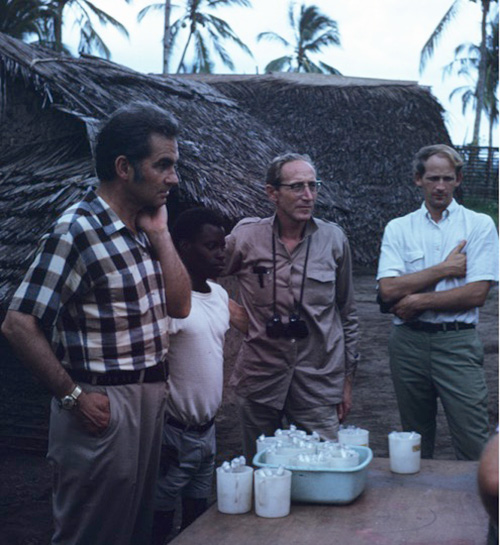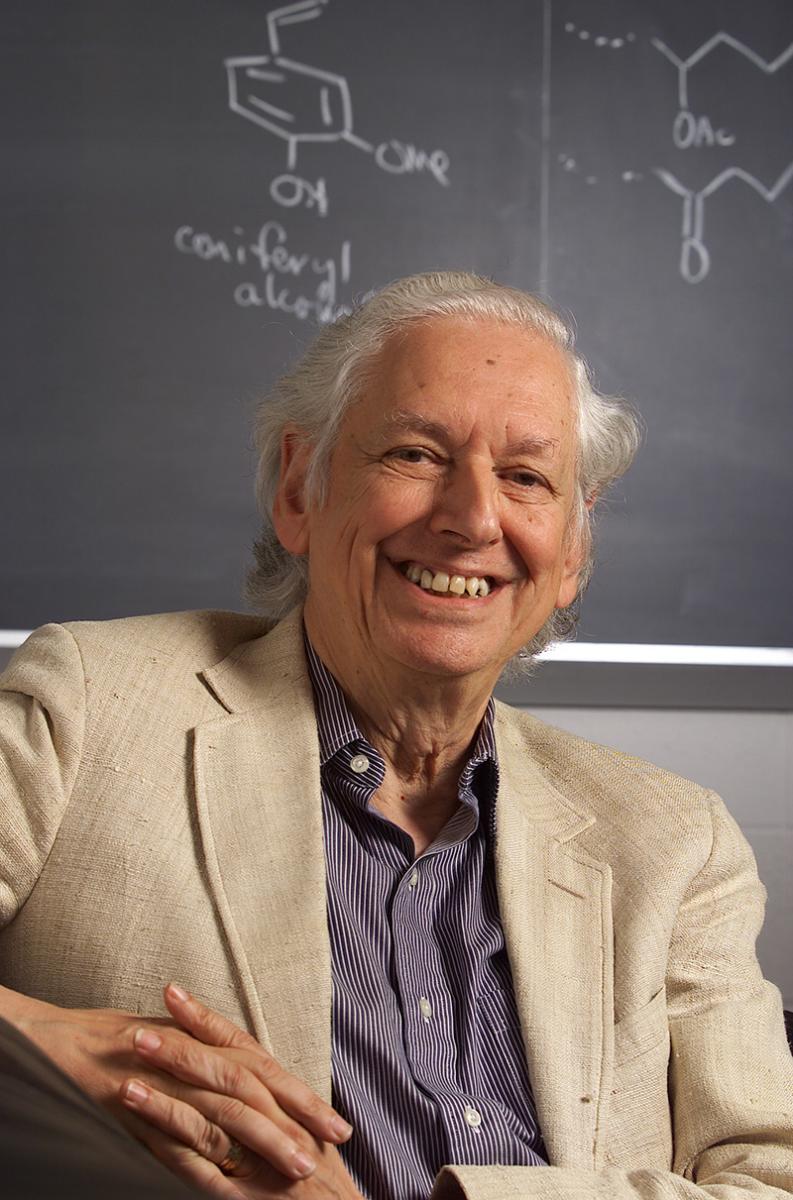Tribute to Prof. Jerrold Meinwald (16 January 1927 – 23 April 2018)
Eminent chemical ecologist; pioneering scientist and friend of icipe
When icipe was founded in 1970, it was with the very noble mission of creating a centre of excellence that would enable Africa to sustainably increase agricultural production and address prevalent tropical and vector-borne diseases.

However, the Centre’s founders, led by the late Prof. Thomas Risley Odhiambo, were realistic that the then postcolonial continent had inadequate human, financial and infrastructural capacity to effectively tackle the challenges at hand. Therefore, the establishment of icipe relied extensively on the support of the global scientific community, with over 20 national academies in Europe and the United States of America becoming sponsors of the Centre. Convinced by Prof. Odhiambo’s vision, these institutions provided much needed research directors who established programmes at icipe striking a balance between Africa developmental needs and world-class scientific research standards.
Among the directors of research to join icipe under the arrangement above was Prof. Jerrold Meinwald, a renowned American chemical ecologist who died on 23 April, aged 91, at his home in Ithaca, New York, USA. Born in 1927, Prof. Meinwald had obtained a PhD in 1952 at Harvard University under the tutelage of Robert Burns Woodward (1917 – 1979), considered by many to be the preeminent organic chemist of the twentieth century.
Prof. Meinwald then joined Cornell University, USA, where, in collaboration with his colleague and friend, Thomas Eisner, he made fundamental discoveries on how chemicals act as repellents and attractants between organisms. Indeed, the two scientists are credited with enormous contributions to the field of chemical ecology – the science that deals with the many ways animals, plants and microorganisms chemically interact. One field of their interest was the way in which insects either use plant secondary metabolites directly or indirectly as precursors to synthesise defence compounds.

In 1970, Prof. Meinwald was elected a fellow of the American Academy of Arts and Sciences, one of the sponsors of icipe, leading to his appointment as a director of research at the Centre. At the time, icipe’s research was organised around four themes: insect ecology and genetics; insect sensory physiology and behaviour; insect hormones; and chemistry and biophysics of insects. The studies within these four themes were focused on five insect species: tsetse fly; ticks; African armyworm; yellow fever transmitting mosquitoes; and termites. These insects had been selected on the basis of their importance to Africa and because they presented unique opportunities for research of interest to the international scientific community.
Prof. Meinwald became Director of Research of the Chemistry and Biophysics of Insect unit, concentrating on termites. At the time, the economic importance of termites due to their damage on crops and forest products, had not been accurately computed, although it was certainly significant. Termites were also vital based on the crucial role they are suspected to play in the soil and landscape architectural activities in the tropics. In addition, termites provided major opportunities for experiments to understand chemical communication systems of insects. Further, in Africa, termites achieve a complexity in social organisation rarely attained elsewhere, offering an additional and exciting dimension for research.
Under Prof. Meinwald’s leadership, and Prof. Odhiambo’s guidance, icipe launched a termite research programme supported by thorough scientific studies, leading to trail blazing knowledge on the behaviour of certain species of the insects and chemical analysis of the pheromones involved. The Centre also commenced investigations on the factors that regulate the differentiation of the many castes of higher termites.

Overall, Prof. Meinwald laid the foundation for insect behavioural and chemical ecology studies at icipe, leaving a thriving and vibrant research group by the time he exited the Centre in 1974. We are proud to have built on his legacy, now evident in the icipe Behavioural and Chemical Ecology Unit (BCEU). This Unit is noted for its research on the development of environmentally-sound methods to reduce or suppress pest, and to increase populations of beneficial insects including natural enemies of these pests. Central to BCEU’s activities is the identification, formulation and evaluation of pheromones, kairomones, allomones and hormones mediating arthropod behaviour.
Aside from his achievements at icipe, Prof. Meinwald was outstanding in the world of science at large, earning extensive global recognitions. He trained generations of chemists and produced more than 400 journal articles with some 200 collaborators.
A friend of icipe to the very end, Prof Meinwald’s last communication with the Centre was in 2016, when he initiated discussions on our upcoming (in 2020) golden anniversary. We are honoured and greatly indebted to have been associated with this exceptional scientist, described by many as a “remarkable human being with a soft-spoken, easy-going style”; “a stupendous colleague – a gentleman and a scholar.”
We send our heartfelt condolences to his wife, Charlotte Greenspan, and his three daughters.

